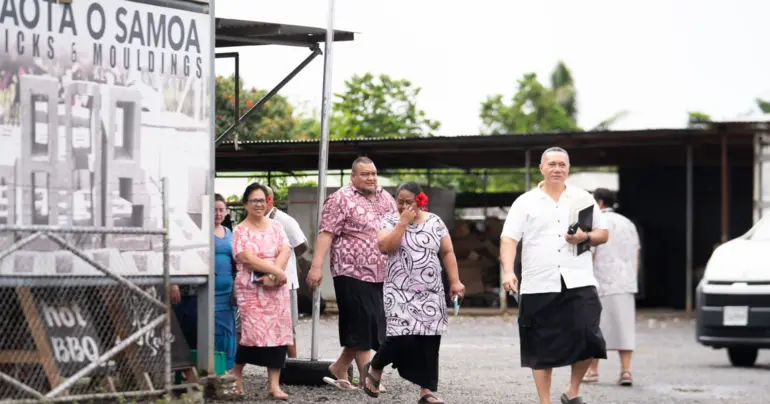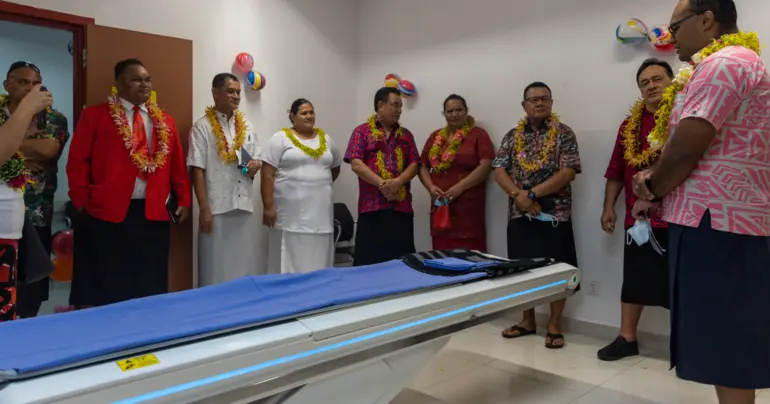Election's role is providing new ideas
 By The Editorial Board
•
31 July 2020, 11:58PM
By The Editorial Board
•
31 July 2020, 11:58PM
The official launch of the F.A.S.T. party on Friday was a welcome sign of things to come in this election and the party’s intention to present itself as a serious alternative Government.
One of the few advantages of running for election from opposition is the temptation of a ‘small target’ campaign.
Opposition parties have reams of records to attack - in this case, one of a Government whose record stretches back decades - but do not need to defend anything themselves.
It’s an easy trap for would-be politicians to fall into but ultimately a low-risk but low-reward strategy; one unlikely to fill the public with confidence that they are voting for an outfit with a vision for a nation.
F.A.S.T.’s launch yesterday was a clear signal that it intends to rise above this seductively easy but substantially empty style of campaigning.
But we think Samoa is in desperate need of new ideas and fresh policies and the best way for that to be achieved is an election that is a hard-fought contest of ideas, regardless of who emerges as the winner.
What we saw from F.A.S.T. yesterday is far from a fully-costed and fleshed out policy manifesto rather than what is mostly a statement of principles.
But for a party that was only about three weeks ago announcing its intentions to run and cobbling together its candidates and administrative apparatus, what we saw on Thursday was a promising sign of a political party that means business.
We expect to see more detail.
But nine months out from the election F.A.S.T. have already laid more policy cards nine the table than the five other parties who are throwing their hat in the ring with the aim of challenging this Government.
One of F.A.S.T.’s early headline policies serves as a good example of the way in which new ideas are brought about by the rigours of an election contest.
The party announced and which distinguishes themselves from their competitors is the imposition of term-limits “to ensure good governance and avoid the abuse of power and entrenched corruption”.
We do not believe that it necessarily follows that a system of Government leads to “entrenched corruption.”
But the idea of imposing term-limits on Samoan policy is an interesting one which merits consideration.
The biggest downside to term-limits as an idea is that when they are most needed, in dictatorships such as Russia - they are simply brushed aside. In Russia, laws prevented anyone from running for office for more than two six-year terms. But through political manoeuvring, President Putin has, in one way or another, ended up ruling Russia for more than two decades.
But in a culture without a history of dictatorship, there is a lot that can be said about creating a political culture in which leaders are in office to make reform happen and quickly.
It should be asked what a Prime Minister cannot achieve within two five-year terms can be achieved in a third?
Term limits would also answer one of the greatest problems besetting Samoan politics at present: a lack of experience at the cabinet-level and overreliance on our top political leaders.
Our current Cabinet includes an astounding six Ministers who are in their first term in Parliament.
Aside from the Prime Minister, Tuilaepa Dr. Sailele Malielegaoi, and his deputy, Fiame Naomi Mataafa, the experience on the ruling Human Rights Protection Policy’s (H.R.P.P.) front bench is a very shallow pool indeed.
A system of term-limits would speed up political careers. It would increase the pace with which reforms are made but perhaps more importantly for those who care about the quality of governance, give parties an incentive to groom more future leaders at the Cabinet-level to create a future pool from which leaders might be selected.
The arguments against term-limits, of course, are that they rob the Government of the benefit of experience.
But the nation is undoubtedly suffering from a lack of experience at the cabinet-level at present.
Whether term-limits are the answer is a question open to debate and one which we look forward to having.
It is an example of the kinds of ideas we expect opposition parties to bring to political debates. Another way to introduce new ideas into politics is through oppositions announcing new policies.
F.A.S.T.’s launch is a welcome sign that this election, may mirror the 2001 campaign which saw the Samoan National Development Party win nearly one-quarter of the popular vote.
We do believe that anything that improves the quality of political debate in this country should be encouraged.
And so we would encourage F.A.S.T. to build on the foundation it unveiled this week with a policy manifesto that includes Ministry specific policies and critiques.
We would also encourage the other five parties running as an opposition to follow F.A.S.T.’s lead and put some ideas on the table.
Even if unsuccessful at winning Government, or even seats in Parliament, having our Ministries subject to the scrutiny that only an election can provide can only be good for the nation.
The best elections are contests of ideas. For the country’s sake, we hope to see more of them before next year’s general election.
 By The Editorial Board
•
31 July 2020, 11:58PM
By The Editorial Board
•
31 July 2020, 11:58PM










